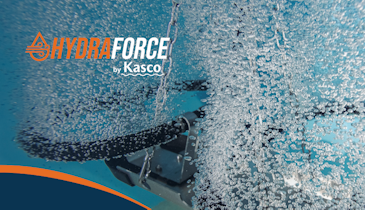Interested in Odor Control?
Get Odor Control articles, news and videos right in your inbox! Sign up now.
Odor Control + Get AlertsIncreased precipitation from a changing climate could pollute U.S. waterways with excess nitrogen, increasing the likelihood of severe water quality impairment from coast to coast, according to a new study by scientists Eva Sinha and Anna Michalak of the Carnegie Institution for Science and Venkatramani Balaji of Princeton University.
The results are published in the journal Science.
The effects will be especially strong in the Midwest and Northeast, researchers found, as nutrients cause eutrophication, toxin-producing algae blooms and low-oxygen dead zones.
Over the past several years, dead zones and algae blooms in coastal regions across the United States — including the Gulf of Mexico, the Chesapeake Bay and Florida — have received extensive news coverage.
Sinha and Michalak used models to predict how climate change might affect eutrophication. “In the 1970s, we discovered human-caused eutrophication and took steps to reverse its course,” says Tom Torgersen, director of the National Science Foundation’s Water, Sustainability and Climate program, which funded the research. “As this paper shows, however, even seemingly minor climate variations can result in a return to the eutrophication of the past. It will take more research to create better management strategies just to stay even.”
In an earlier study, Sinha and Michalak found that while land use and land management control the supply of nitrogen, precipitation controls how much of that nitrogen flows from the land into waterways.
They noted that the amount of precipitation plays a large role in determining how much nitrogen runoff happens during a given year.
In the current study, they used these insights to predict how future changes to precipitation caused by climate change will affect nitrogen runoff and thereby increase the risk of water quality impairment in the U.S.
The scientists leveraged projections from 21 different models and looked at three possible future scenarios.
They found that if trends in greenhouse gas emissions follow their current course, the resulting changes in climate will alter precipitation patterns in the U.S. and increase nutrient pollution by one-fifth by the end of the century. The effects will be particularly strong in the Corn Belt and in the Northeast.
Offsetting the increased amount of nitrogen being washed into waterways would be an enormous task, requiring a one-third reduction in overall nitrogen inputs, such as fertilizer use.
“Our findings demonstrate that it is imperative that water quality management strategies account for the effect of future precipitation changes on nitrogen loading,” says Michalak.
Sinha’s and Michalak’s results are specific to the U.S., but the researchers have identified India, China and Southeast Asia as areas at high risk for large increases in nitrogen pollution due to increased precipitation.
“These are regions that more than half the world’s population calls home, so severe water quality impairments could have serious effects,” says Sinha.
The National Science Foundation (NSF) is an independent federal agency that supports fundamental research and education across all fields of science and engineering. In fiscal year (FY) 2017, its budget is $7.5 billion. NSF funds reach all 50 states through grants to nearly 2,000 colleges, universities and other institutions. Each year, NSF receives more than 48,000 competitive proposals for funding and makes about 12,000 new funding awards.






